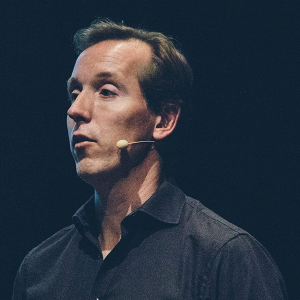Summary
DesignOps helps design teams be more efficient, effective, and happy by creating the best possible circumstances for design. Whether there are one or more full-time DesignOps professionals available or just several people with the DesignOps mindset, coordination of DesignOps initiatives is necessary to have the biggest impact. It is therefore crucial to be working with a continuously updated roadmap for DesignOps, featuring prioritised initiatives, their rough planning, and expected impact on the design team’s metrics. This session teaches you how to make sure the right DesignOps initiatives are executed with the right people, to have the biggest possible impact.
Key Insights
-
•
A design ops roadmap should start with a thorough inventory of organizational issues gathered through stakeholder interviews across roles.
-
•
Prioritization of design ops initiatives must reference design org goals or KPIs to ensure impact and stakeholder buy-in.
-
•
Distributing design ops work among specialized contributors improves execution and develops design ops capabilities in others.
-
•
Writing clear briefs for each initiative helps secure alignment, resources, and ongoing coordination.
-
•
Regular measurement and data-driven storytelling around initiatives’ impact help demonstrate design ops value and progress.
-
•
Iterative reviews—weekly tweaks and quarterly deep check-ins—are essential for keeping the roadmap relevant and actionable.
-
•
Design ops leadership benefits from reporting outside design leadership to help maintain independence in prioritization decisions.
-
•
Tools like project trackers and automated bots can significantly enhance visibility and efficiency in design ops efforts.
-
•
Engaging the entire design organization—including individual contributors and cross-functional partners—uncovers hidden problems and boosts adoption.
-
•
Balancing planned roadmap initiatives with emergent organizational needs involves scenario planning and close communication with leadership.
Notable Quotes
"We design operators continuously improve the circumstances for designers and the design organization to increase the chances of good design happening."
"A design process is never really done, there's always feedback and continuous cleanup."
"One initiative took about a week for research and a week to build, with nearly 1900 Excel functions behind it for capacity planning."
"It helps if contributing to design ops initiatives is something people get reviewed on in their performance reviews."
"If you can maneuver yourself in a position where you don't have to listen to design leadership, you don’t necessarily need that trust."
"Metrics allow you to tell data-supported stories about progress, which is a good thing."
"Your first round of interviews takes extra time because you’ll be pointed to people who don't really have an influence on the design ops roadmap, but you still want to be nice and interview them."
"Writing a brief for every design ops initiative is my tip for practice."
"Once projects are done, you archive them, but not before telling a data-driven story."
"Helping leadership with 'what if' scenarios for org changes is a valuable design ops support."
Or choose a question:
















More Videos
"Scale isn’t just about quantity, it’s about the quality and impact you have on the outcomes of the organization."
Standardizing Product Merits for Leaders, Designers, and Everyone
June 15, 2018

"If I don’t have a map, I can’t see patterns or apply context-specific gameplay."
Simon WardleyMaps and Topographical Intelligence (Videoconference)
January 31, 2019

"Many smartwatch designs assume male hands as default, excluding smaller wrists and diverse body types."
Sandra CamachoCreating More Bias-Proof Designs
January 22, 2025

"Appealing to stakeholders’ best interests helps build trust and rapport."
Darian DavisLessons from a Toxic Work Relationship
January 8, 2024

"Stakeholder communication is crucial to professional strategy because without it, we run the risk of activity without impact."
Fisayo Osilaja[Demo] The AI edge: From researcher to strategist
June 4, 2024

"There is a common thread in craft: dignity, purpose, utility, and beauty."
Uday GajendarThe Wicked Craft of Enterprise UX
May 13, 2015

"We formed a small core task force empowered to make decisions to avoid delays from formal reviews."
Davis Neable Guy SegalHow to Drive a Design Project When you Don’t Have a Design Team
June 10, 2021

"People felt designs were self-evident and too much explanation was a barrier to using the patterns."
Eniola OluwoleLessons From the DesignOps Journey of the World's Largest Travel Site
October 24, 2019

"Product managers feel design is a black box; they want visibility, transparency, and accountability on timelines."
Aurobinda Pradhan Shashank DeshpandeIntroduction to Collaborative DesignOps using Cubyts
September 9, 2022
Latest Books All books
Dig deeper with the Rosenbot
How do statistical significance and practical significance differ in real-world decision making?
How do I engage disability community groups and employee resource groups for research participation?
How can designers cultivate a collective, hopeful ideal for the future of design amidst technological hype?
















